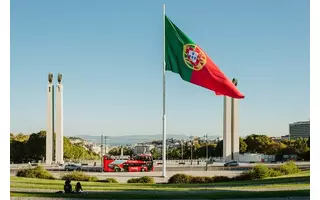Specialists in international mobility, lawyers Renato Martins and Thiago Huver will give the lecture “Grandchildren and great-grandchildren: paths to Portuguese nationality”, on Saturday, August 20, at 2 pm, at the InterContinental hotel, in São Paulo. The unprecedented event will present the recent changes in legislation in Portugal, which facilitated the access of Brazilian descendants to European citizenship.
Registration is free and can be done online through the link: https://move.martinscastro.pt/caminhos-nacionalidade-portuguesa. The event has limited seats and, after the presentation, experts will be available to answer questions. There will also be a live broadcast on Youtube, on the channel of Martins Castro Consultoria Internacional, organizer of the action.
The CEO of Martins Castro, an international consultancy based in Lisbon, Renato Martins, assesses that the simplification of rules has stimulated the growth of requests for nationality. In recent months, the number of requests in the consultancy has increased by around 40%. Master in Law from the University of Lisbon, he projects that this trend will advance in the coming years because there are still thousands of Brazilians who are unaware of the legislation regarding Portuguese citizenship.
To get an idea, estimates from Portuguese communities indicate that there are about five million grandchildren in Brazil. But, as the process of Portuguese migration was the oldest and longest in Brazilian history, it is common to find groups of Portuguese descendants across the States, who cannot prove their descent due to lack of documentation. According to Martins, this happens because, at the end of the 19th century, the Portuguese arrived in Brazil without birth certificates and few had passports. Another factor that hinders the documentary search is the fact that until 1911 there was no civil registry in Portugal. Births and baptisms were carried out by the Catholic Church and, at the time, it was common to have 20 to 30 parishes per municipality or city.
Currently, the law allows the transmission of citizenship to the second generation, which are the grandchildren, even if the ascendants, the parents, have not previously accessed the right. As nationality is inherited, it can be passed on to subsequent generations.
The CEO of Martins Castro comments that the lack of documents of the ascendants has been one of the main difficulties for Brazilians in the search for Portuguese nationality. The law requires the obligatory presentation of certificates, such as the birth certificate, of the Portuguese ascendant to prove the relationship of this originator with the country. “Many know that the grandparents are Portuguese, but, as these documents are no longer in the possession of the families, they cannot have documentary evidence of the birthplace of the Portuguese emigrant,” says Martins.
With the aim of facilitating the document search process, specialists have developed an exclusive technology, with a database of more than one million metadata, which has helped indexing and document search in archives and public bodies in Brazil and Portugal. The functionalities of this database, which, according to him, are the results of almost two years of research, will also be presented during the event. For Martins, the application of these new work methodologies, which involve artificial intelligence, genealogical research and legal strategies, has been fundamental in proving the right to nationality for grandchildren and great-grandchildren of Portuguese citizens.
Master in Private International Law and partner at Martins Castro, Thiago Huver, believes that the main benefit of Portuguese citizenship is the possibility of moving around the world in a more peaceful and easy way. He comments that Portuguese nationals have the right to move freely, work, study and retire in any country in the European Union. In addition, the document allows visa-free access to countries such as the United States, Canada, Australia and Japan. “In addition to recovering a historic family link, citizenship opens up countless opportunities for those who want to internationalize their careers, study abroad, invest, move and just do tourism.”
Service
Lecture “Grandchildren and great-grandchildren: paths to Portuguese nationality” free event
Speakers: Renato Martins, Master in Law from the University of Lisbon and CEO of Martins Castro and Thiago Huver, Master in Private International Law and partner at Martins Castro
